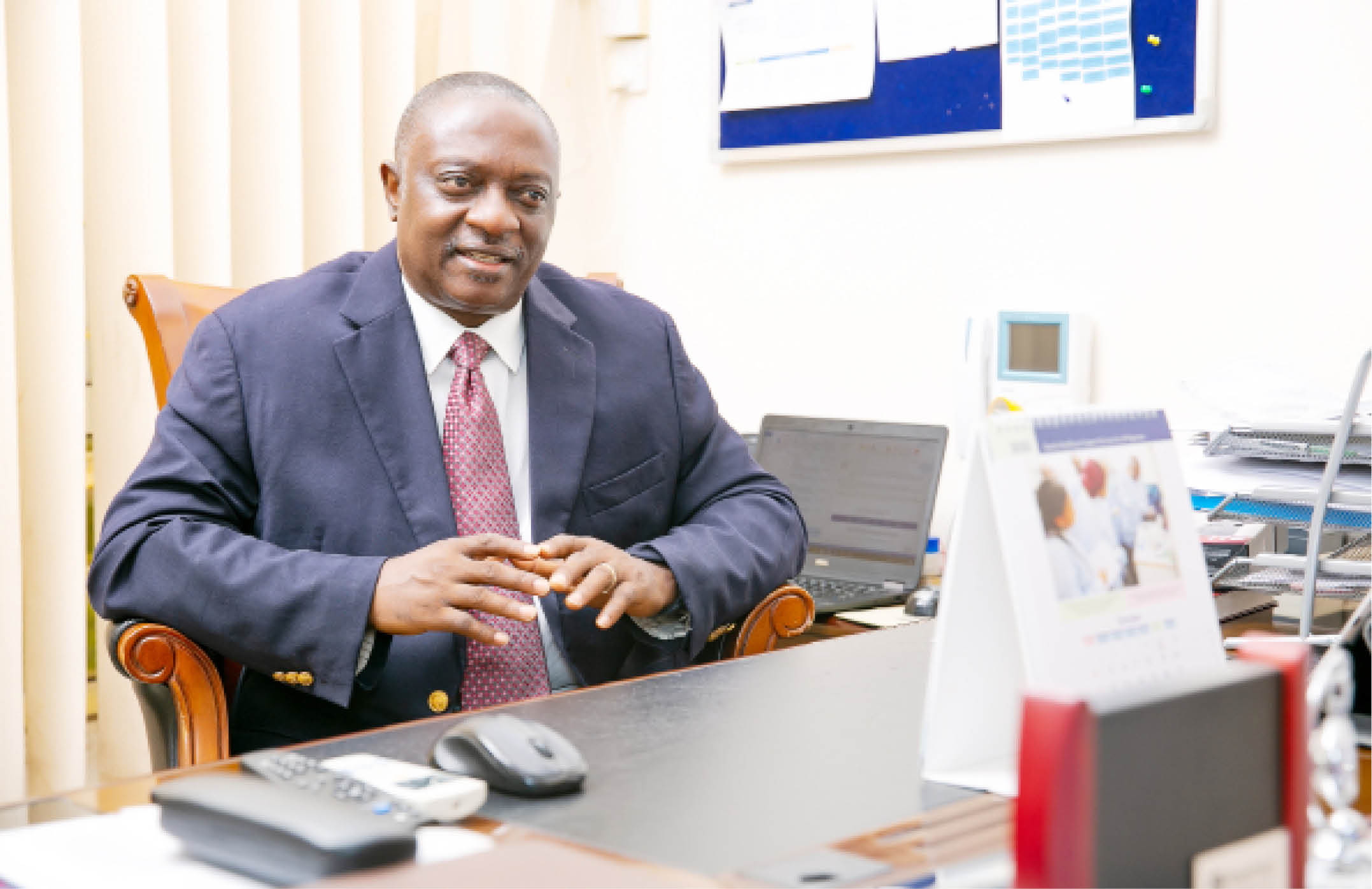Prof Patrick Dakum, is the Chief Executive Officer of the Institute of Human Virology Nigeria (IHVN). Dakum who is also a professor of medicine at the University of Maryland School of Medicine, Baltimore, USA, in this interview speaks on threats posed by the COVID-19 delta variant and explains how it can rapidly spread to communities.
Recently the Nigeria Centre for Disease Control (NCDC) said it has detected a confirmed case of the Delta variant of COVID-19 in the country. Can you tell us why it is a public health concern?
- Vigilantes to lead fight against bandits in Sokoto – Tambuwal
- FG fails to file extradition charges as Benin court remands Igboho
Right from the outset of the pandemic in 2019, we always knew that there is a possibility of the COVID-19 virus, (which is a SARS-CoV-2 virus), mutating or having different variants. But what we didn’t know was how these variants will behave. From then till now I think we must have had several variants; some dominant in the sense that they become the agents of transmission, and responsible for a big burden of new transmissions, and some just fizzle out. So the Delta variant is arranged in such a way that it easily attaches to the membranes and easily multiplies. It is more infective, and can transmit from one person to the other quickly.
This means that for other variants for instance, if you put 10 people, it will infect one person, but this variant will be able to infect close to about five or six people.
So it is several times more infectious. The public health implication is that outbreaks can spread easier. This means that if it enters into a community, its ability to infect several people in that community is higher than the other variants.
So from the public health point of view, it means that we must exercise extra caution when it comes to this. The methods for preventing SARS-CoV-2 have not changed and that is the preventive measures, wearing your face mask, washing your hands with soap and water, and maintaining social distancing.
We have now relaxed to the point of having congregational meetings. We have to be a bit more careful, especially in places where this variant has been introduced. The Delta variant is now the dominant variant in both the United Kingdom and in the United States of America for new infections.
Now, it is in Nigeria and we have virtually thrown off all non-pharmaceutical measures. I am just from a meeting where I was the only one wearing a face mask and they turned around and said, “Haba doctor! this thing has already gone now, why all this fuss. You these health people” and I said “no there is a variant that is more infectious.’ With all of this, it means that we may begin to see more people dying as a result of COVID-19, when we thought we had crossed that level.
Now, two weeks ago, the total number of cases in the country for that week was just about 370 or so. The previous week, it was about 600. We have had an 88% weekly increase in the past week. So it means that we must be extremely careful.
Now the other intervention measure that is a game-changer in the developed world is vaccination. The more people we can get vaccinated, the better. This is because the vaccines work against the delta variant too, even though to a different extent. But since it works, let us avail ourselves to get vaccinated.
The Delta variant is here when there is an impending third wave. What extra measures should Nigeria take to prevent or handle it?
The first thing is to increase the aggressiveness of testing for us to confirm that indeed it is happening. Secondly, doing a deep dive on the data of new infections to locate the geographic area where the spread is most and then taking measures of containing that geographic area.
We generally should say that given the risk, put on your face masks everywhere you go to that has more than 10 people, and maintain washing of hands with soap and water.
Also, let’s not wait for people to present symptoms wherever outbreaks have been detected. Let us proactively be testing in congregations, and marketplaces. Everyone who comes into a healthcare facility should have a test done, and if it is possible introduce lockdowns in those micro areas of outbreak. Also restrict movements where there is an outbreak, for instance in a particular area of a town while it is being contained.
It is not an easy thing to do but if we do it, we will reduce the possibility of it becoming a statewide and nationwide pandemic. So in every outpatient department of primary health care centers now, we should begin to consider carrying out massive testing to confirm, and that will give us an idea of how aggressive we need to be.
Remember that there are countries that have gone back to lockdowns. We don’t have to get into that situation but if we get a third wave that results in high mortality, Nigeria may have no other option but to go back to a total lockdown.
Look at what is going on in Uganda; they have now introduced lockdowns in several parts of the country.
We can prevent getting there by being aggressive with our individual responsibilities, and above all, being aggressive about ensuring that we get vaccinated.
The Delta variant is a reminder to us that COVID is still around. The Institute of Human Virology Nigeria is continually poised to partner with the government to ensure the safety and security of fellow Nigerians.
It is often said that the pandemic led to the relegation of other diseases. How is your institute sustaining HIV testing and treatment in particular, in the midst of the pandemic?
The good thing about the response to HIV is the fact that we have been able to narrow the burden of disease and also the new infections to particular geographic areas.
For instance, during the lockdown, we piggybacked on the testing that was going on for COVID-19, to also test for TB and HIV. While the pandemic was also ongoing, there was a challenge of accessing care by HIV patients because of the lockdown and the fact that hospitals were not working on routine.
Remember that once you don’t take your drugs, the HIV virus bounces back, and you become a risk again to the community.
We devised a number of methods, including working with the Network of People Living with HIV/AIDS (NEPHWAN), to deliver drugs to patients where they live, either through private facilities, pharmacies or directly in their homes.
We worked with a lot of community groups to continue testing and to provide continuity of treatment. Definitely, other diseases suffered. People, who were to go for routine testing for their ongoing illnesses, like high blood pressure, diabetes, etc. were unable to do that. But thank God there is a bounce-back with the lifting of the lockdown.
How did IHVN implement the SURGE project to scale up HIV treatment in Rivers State which recorded a 3.8% HIV prevalence rate in 2019?
When we went to Rivers, there were only about 20,000 people that were on treatment out of the almost 200,000 people that were supposed to be on treatment. We have been able to place about 166,000 people living with HIV on therapy within 18 months which is really a very huge leap. We have also been able to bring down the number of people that interrupt their treatment from between 8% and 10% to less than 2%. And we think that’s an indicator that virtually everybody that we are placing on treatment is receiving it.
We have now achieved close to 92% viral suppression in people who are on treatment, and our goal is a minimum of 95%. So we are on track, and we are hoping to reach 100% of the target.

 Join Daily Trust WhatsApp Community For Quick Access To News and Happenings Around You.
Join Daily Trust WhatsApp Community For Quick Access To News and Happenings Around You.

